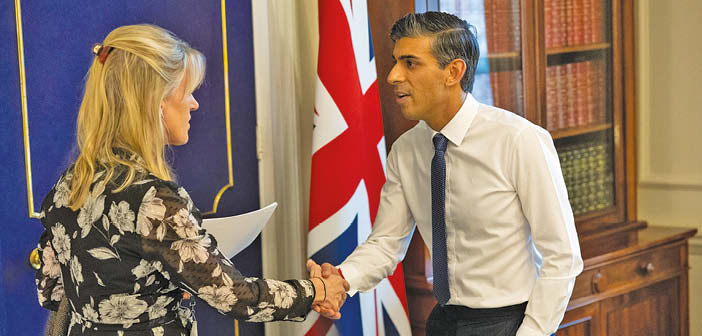The increased allocation of six-month seasonal worker visas, to 45,000 in 2023, announced by Defra and the Home Office in mid December, is accompanied by an undertaking to keep the number under review and release a further 10,000 visas if necessary.
Defra minister Mark Spencer said the government had ‘listened to the horticulture sector’. “While it is right that we offer long-term support to increase the use of domestic labour, we also need to support businesses on the back of what has been a challenging year for food producers,” he said.
NFU horticulture and potatoes board chairman Martin Emmett said the numbers announced by Defra represented a ‘significant stride forward’ but pointed out that with production already in decline due to rising costs and worries over labour availability it would be difficult to predict exactly what the seasonal labour demand would be this year.
NFU deputy president Tom Bradshaw said: “For some growers, the announcement will have come too late with some already having made the difficult decision to reduce production in the coming season. Given the significant pressure growers are currently under, it’s important that any decision to release the further 10,000 visas is timely and made ahead of the peak season.”
The government says any increase in visa numbers will be linked to evidence that the industry was improving worker welfare standards, including a guaranteed minimum number of hours per week, and will be strengthening compliance inspections where it thinks there is a risk of exploitation. The independent Migration Advisory Committee, in its annual report published in December, suggested safeguards could be improved by minimising barriers for returning workers. For instance, it said the Home Office might want to look at shortening the period workers at the end of their six-month visa have to spend outside the UK before being allowed to return.
Seasonal labour was among the priorities for growers raised by NFU president Minette Batters when she secured a face to face meeting with Prime Minister Rishi Sunak in December – in which she called on him to make good on the commitments he’d given to the industry during his leadership campaign in the summer.
The discussion also focused on food security and fair dealing in the supply chain, together with the opportunities to grow the fresh produce sector if production costs stabilise and returns improve.
Meanwhile, a survey report published by the Association of Labour Providers (ALP) in December suggests three-quarters of food businesses could not recruit the workforce they needed in 2022 while 40% said they were experiencing ‘chronic shortages’ of pickers, packers and processing workers. Around 60% of growers and food manufacturers said they expected to be short of labour in 2023.
Outgoing ALP chief executive David Camp said the labour shortage had resulted in £60m worth of produce being wasted on farms this year. “Our plea is for government to listen to and work with our industry in ongoing partnership to address food industry labour shortages,” he said. “The current independent review into labour shortages in the food industry [should be] a catalyst to reframe how government works with the UK food sectors so that home-grown food production is put at the core of our national security.”
Read more news and features from the commercial vegetable growing industry in our monthly publication The Vegetable Farmer.














